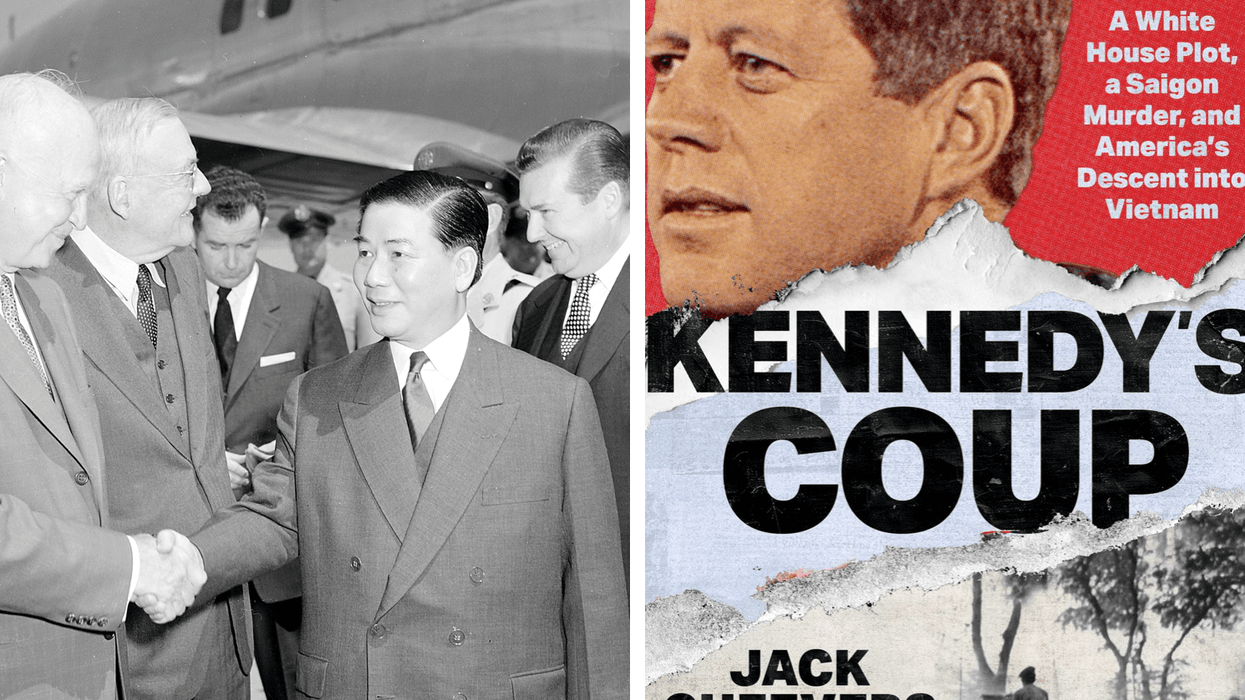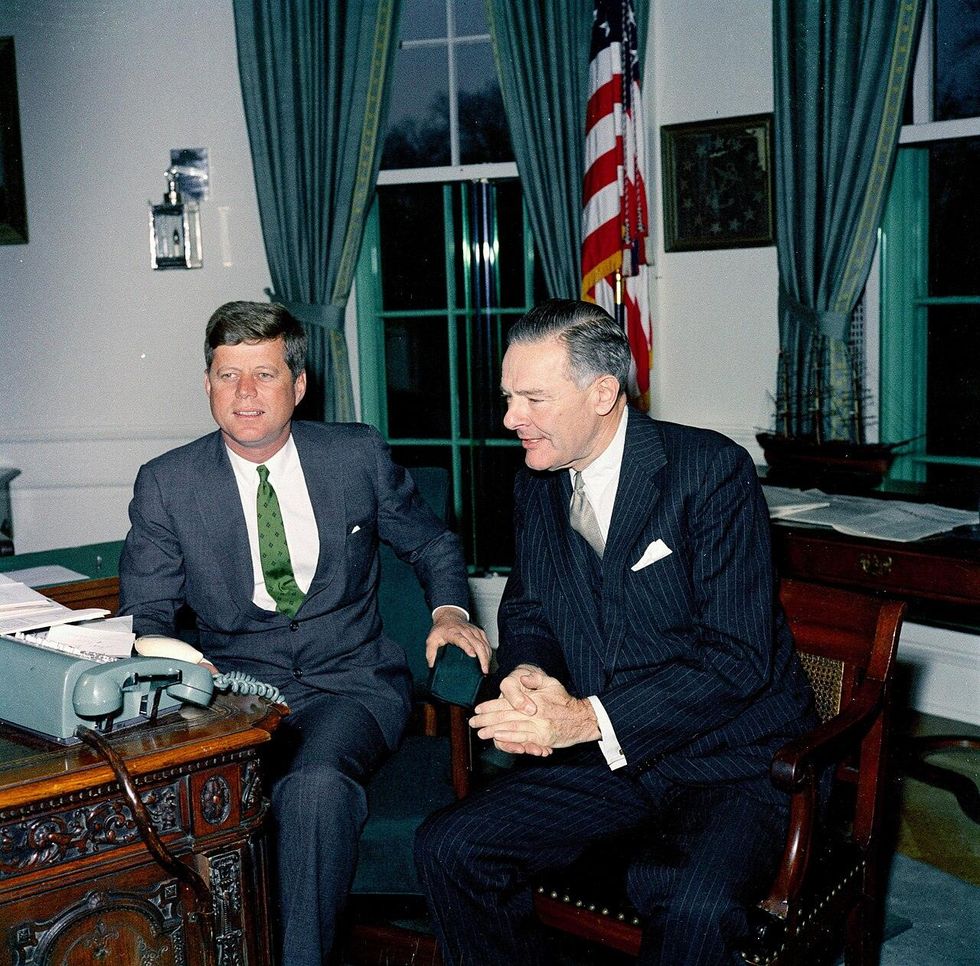Last August, South Korea’s Ministry of Foreign Affairs, stung by the Trump administration’s criticism of its withdrawal from an intelligence-sharing pact with Japan, summoned U.S. Ambassador Harry B. Harris Jr. for an emergency meeting at its headquarters in downtown Seoul.
From Seoul’s perspective, President Moon Jae-in’s decision to pull out of the General Security of Military Information Agreement, or GSOMIA, was perfectly justified. He took the action only after Prime Minister Shinzo Abe, in a fit of pique, imposed export controls on Korean products over a Korean court decision clearing its citizens to sue Japanese corporations for forcing them to work as slave laborers during World War II.
But Washington was having none of it, and U.S. officials and their advisers at the think tanks were harshly critical of the move. For days, they’d been arguing that GSOMIA and its integration of intelligence into the trilateral military alliance with Tokyo and Seoul were essential to the U.S. military presence in Asia. Recently, anonymous U.S. Embassy officials in Seoul had been carping that Moon could exacerbate tensions with Tokyo at a critical time in the U.S. denuclearization talks with North Korea.
To Seoul, Ambassador Harris’s comments crossed a line. In blunt terms, Cho Sei-Young, an assistant vice minister of foreign affairs, told Ambassador Harris that the Americans should back off. "The U.S. position has been fully communicated to our government,” Cho said, according to an account by the Kyunghyang Shinmun. “The U.S. government repeatedly sending out public messages will not help strengthen the ROK-US alliance.” His remarks were leaked to the press for maximum effect.
But that didn’t stop Harris, who began his term in Korea in 2018 after serving for three years as the Commander of the U.S. Pacific Command.
A few weeks after his meeting with Cho, Harris called reporters to his official residence in Seoul to continue the U.S. campaign for GSOMIA. He argued that Moon’s cancellation of the sharing agreement with Japan was an unnecessary linkage of security with economic issues and would make it harder for U.S. forces to defend South Korea, as they are sworn to do under the 1954 Mutual Assistance Treaty.
“That security realm affects us,” Harris told Yonhap News, which is owned by the South Korean government. “So, now it affects the U.S. and our ability to defend Korea, and puts our troops at risk ... so that is why we reacted quickly and strongly in expressing disappointment at Seoul's decision.”
Acting more like a colonial ruler than an ambassador to a sovereign nation, he insisted that Moon change his mind: “Korea has to come back to the negotiating table [with Japan] in good faith.” (That hasn’t happened, although Moon’s Blue House said on February 12 that GSOMIA remained a “viable option” for South Korea if Abe drops the export controls).
Harris’s interview with Yonhap, it turned out, was just the beginning of an onslaught of public criticisms of South Korea.
Since last fall, he has used his perch at the embassy, which sits like a fortress along Seoul’s famous Gwanghwamun corridor, to take South Korea to task, from the cost it is paying for U.S. bases to its desire to expand its economic and social contacts with the North. At a time when South Korea is struggling to maintain its sovereignty and diplomatic composure in the face of Trump’s policies, Harris has become the local enforcer of U.S. imperial and security interests.
His statements, unusual in tenor for a diplomat in any country, have drawn public opprobrium from Korean politicians from the left and right, and made Harris one of the most despised ambassadors the United States has ever sent to South Korea. His actions — and, strangely, his mustache — have even led some Koreans to compare Harris to the Japanese Governor-Generals of the colonial period. A few politicians have called for his removal.
"Since arriving in Korea, Ambassador Harris has incessantly meddled in South Korea's policies regarding unification and national security," Rep. Kim Jong-hoon of the minor Minjung Party declared at a press conference in November. "He exerted undue pressure on the government and politicians to push the increase in defense cost-sharing and extension of the GSOMIA.”
Korean media has been scathing. Harris’s behavior has “raised concerns about whether the ambassador is giving Seoul the level of respect it deserves as one of Washington's indispensable Asian allies …,” the centrist Korea Times noted in December. Two weeks later, after another round of public criticism from Harris, the Times had dropped its careful language.
“U.S. Ambassador Harry Harris is gaining the status of persona non grata among the Korean public, if not yet officially designated as such by the Korean government,” it reported on January 21 in an article titled “Harris disliked by liberals and conservatives alike.” It continued: “His words and acts that defy diplomatic protocols dismay and make Koreans feel humiliated. Conservatives and progressives agree on this assessment, which is rather unusual in the extremely polarized nation.”
Harris’s policies are, in part, a demonstration of President Trump’s nationalistic approach to foreign affairs, particularly his view that allies are taking advantage of U.S. largesse.
But they also reflect the worldview of Harris, who has spent most of his career with a military that controls huge swaths of the Pacific and, through U.S. Force Korea, maintains operational control over the South Korean military in times of war. His more benign approach to Japan’s role in Korea may also shaped by his heritage: Harris was born in Japan, the son of a Japanese mother and a U.S. Navy officer who served in Japan and Korea after World War II.
His most controversial comments came in January after President Moon declared in a press conference that in 2020 he would stress cooperation with the North over the protracted negotiations between President Trump and North Korean leader Kim Jong Un.
Harris responded in typical style a few days later, telling foreign reporters in Seoul that South Korea must consult with Washington on any plans for cross-border engagement with the North “in order to avoid a misunderstanding later that could trigger sanctions.” In an extraordinary rebuke, Lee Sang-min, a spokesperson for the Unification Ministry, reminded Harris that South Korea is a sovereign nation that “dictates its own policies” toward the North.
Harris also drew ire when he loudly defended Trump’s demand that South Korea quintuple its spending for U.S. bases in the country to $5 billion a year — something that is opposed by over 90 percent of the Korean public, according to a recent poll conducted on behalf of the Chicago Council on Global Affairs.
He repeated the demand over a dozen times in a private conversation at his residence with Lee Hye-hoon, chairperson of the National Assembly Intelligence Committee. “I was taken aback, really astonished,” Lee later told a reporter. “I’ve seen a lot of ambassadors over the past decades, but this was a first.”
“It was an arrogant and impolite display from the US ambassador,” the progressive outlet Hankyoreh observed about Harris’s remarks to Lee. The newspaper, which was founded in the 1980s by journalists purged from their profession by previous authoritarian governments, called on the Korean public for support against Harris.
“Extricating North Korea and the US from their tangle of antagonistic relations and nuclear issues and navigating the ‘Cold War valley’ toward permanent peace will require the power of South Korean democracy to rein in a historically bad US ambassador,” Hankyoreh declared. “In addition to wisdom from the Moon Jae-in administration and the National Assembly, this is a moment that also calls for civil society to make its voice heard.”
That could also be said of civil society in the United States. With its complex politics and impressive democracy, South Korea deserves a U.S. ambassador who respects its sovereignty and fully supports its desire for peace and reconciliation with the North. Hopefully he will be replaced soon — either by this administration or the next one.





 President John F. Kennedy and Henry Cabot Lodge Jr. in 1961. (Robert Knudsen/White House Photo)
President John F. Kennedy and Henry Cabot Lodge Jr. in 1961. (Robert Knudsen/White House Photo)










